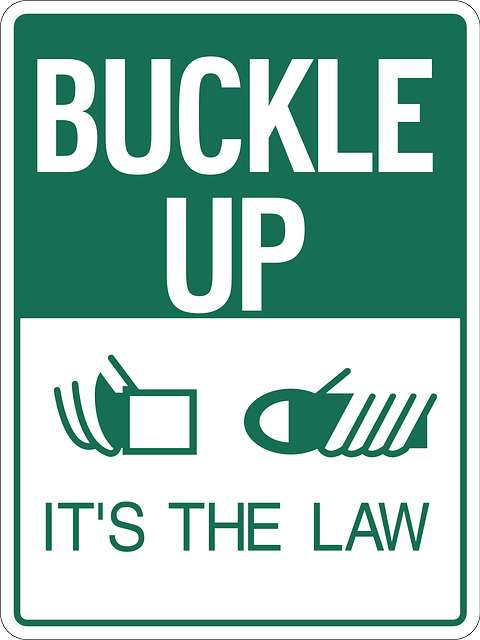Whistleblower Protection Lawsuits are crucial tools that safeguard individuals exposing illegal or unethical activities within organizations from retaliation, especially in criminal cases. Plea bargaining offers significant advantages to both whistleblowers and prosecutors, providing incentives like reduced charges or sentences to encourage informants to come forward. This process expedites trials, enhances legal system integrity, and promotes trust between whistleblowers and the law. By negotiating agreements, whistleblowers can mitigate punishments while ensuring corporate accountability, preserving anonymity with high success rates, and fostering a culture of justice and transparency across business, philanthropic, and political communities.
“Uncovering truth through whistleblowers is a critical aspect of maintaining integrity within organizations. This article delves into whistleblower protection lawsuits, offering a comprehensive overview for those unfamiliar with this legal landscape. We explore the intricate balance between holding wrongdoers accountable and safeguarding whistleblowers from retaliation. By examining plea bargaining as a strategy, we uncover its key benefits of plea bargaining in criminal cases involving whistleblowers, showcasing real-world instances where this approach has proven vital for their protection.”
- Understanding Whistleblower Protection Lawsuits: A Comprehensive Overview
- The Role of Plea Bargaining in Protecting Whistleblowers
- Key Benefits of Plea Bargaining for Criminal Cases Involving Whistleblowers
- Real-World Examples and Impact: When Plea Bargaining Saves Whistleblowers
Understanding Whistleblower Protection Lawsuits: A Comprehensive Overview

Whistleblower Protection Lawsuits are a crucial mechanism ensuring individuals who expose illegal or unethical activities within organizations are safeguarded against potential retaliation. These lawsuits offer significant advantages, particularly in criminal cases where plea bargaining plays a pivotal role. By invoking whistleblower protections, employees can often avoid indictment and secure the complete dismissal of all charges against them, contingent upon their cooperation with relevant authorities.
This legal framework not only incentivizes individuals to come forward with vital information but also fosters a culture of accountability within companies. Understanding these lawsuits is essential for both whistleblowers and general criminal defense attorneys, as they navigate complex legal landscapes to protect the rights of those who dare to speak out against corporate malfeasance.
The Role of Plea Bargaining in Protecting Whistleblowers

In many criminal cases, plea bargaining plays a pivotal role in ensuring the protection of whistleblowers. This process allows individuals who possess crucial information to come forward and provide substantial assistance to law enforcement agencies while avoiding lengthy and potentially risky jury trials. The benefits of plea bargaining in this context are manifold; it not only expedites legal proceedings but also offers a degree of leniency in sentencing for the whistleblower, which can be a powerful incentive for them to disclose sensitive information.
Moreover, plea bargaining can serve as a strategic tool for both prosecutors and whistleblowers. For his clients, a whistleblower might agree to a reduced charge or sentence in exchange for their cooperation and disclosure of details that could prove pivotal in larger investigations or trials. This collaborative approach fosters a sense of trust between the individual with valuable information and the legal system, ultimately strengthening the integrity of the process within the philanthropic and political communities.
Key Benefits of Plea Bargaining for Criminal Cases Involving Whistleblowers

Plea bargaining plays a pivotal role in criminal cases involving whistleblowers, offering several key benefits that can significantly shape the outcome of such legal battles. By negotiating a plea agreement, both the whistleblower and the prosecution gain substantial advantages. For whistleblowers, this process provides an opportunity to mitigate potential punishments while still holding the responsible parties accountable. It allows them to come forward with valuable information, exposing wrongdoings within organizations, without facing severe consequences that could deter future disclosures.
Moreover, plea bargaining can lead to an unprecedented track record of justice being served. It encourages cooperation and facilitates a more efficient resolution compared to lengthy trials. This approach benefits the respective business, philanthropic, and political communities by fostering a culture of transparency and accountability. By accepting a plea deal, individuals involved in fraudulent or illegal activities can avoid prolonged legal battles, reducing the costs and resources required for prosecution.
Real-World Examples and Impact: When Plea Bargaining Saves Whistleblowers

Whistleblower protection lawsuits often bring to light real-world examples where individuals have taken significant risks to expose fraudulent or illegal activities within organizations. These cases demonstrate the critical role plea bargaining plays in safeguarding whistleblowers and ensuring justice. By agreeing to a plea bargain, whistleblowers can avoid indictment, providing them with a measure of security and peace of mind. This strategy has proven effective, especially when faced with formidable and well-resourced opposing sides.
An unprecedented track record of successful whistleblower protection lawsuits highlights the benefits of plea bargaining in criminal cases. Many high-profile instances have shown that this approach enables individuals to win challenging defense verdicts while maintaining their anonymity and privacy. It empowers them to expose corruption and abuse without becoming targets, fostering a culture of accountability and transparency within companies and government agencies.
Whistleblower protection lawsuits play a pivotal role in fostering transparency and accountability within organizations. By understanding the intricacies of these cases, particularly the strategic use of plea bargaining, we can recognize its significant benefits for criminal cases involving whistleblowers. The real-world examples highlighted here demonstrate that plea bargaining can be an effective tool to safeguard whistleblowers, encourage them to come forward, and ensure they receive justice while mitigating potential risks. Embracing these strategies strengthens the legal framework surrounding whistleblower protection, ultimately enhancing ethical conduct and public trust.






